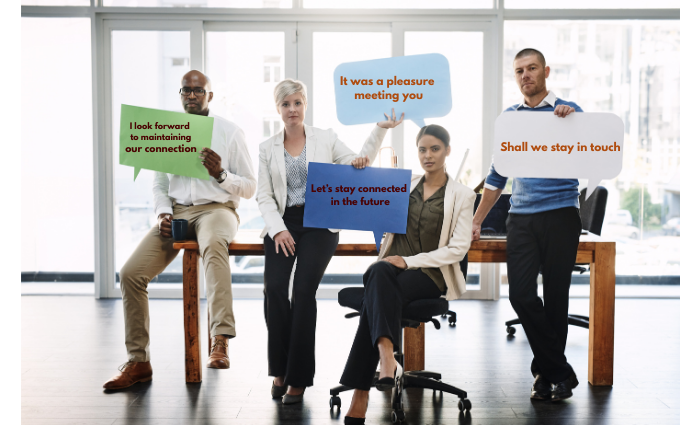When you’re on the phone, every word counts. The way you ask who are you can set the tone for the entire conversation when you’re speaking to a stranger, a professional contact, or even someone you should know but don’t recognize.
Mastering the art of polite phone etiquette ensures you avoid misunderstandings, establish rapport, and leave a positive impression.
In this blog, you’ll discover 10 polite ways to ask who are you on the phone without sounding rude, alongside practical tips for maintaining professionalism and kindness in any scenario.
Why Politeness Matters In Phone Conversations
Think about this: the person on the other end of the line can’t see your facial expressions or body language. Your words and tone are their only cues to gauge your intentions. That’s why politeness matters so much in phone conversations.
When you ask “Who are you?” abruptly, it may come across as dismissive or rude, even if that’s not your intention. Conversely, a polite, well-phrased question demonstrates respect and professionalism, making the caller feel valued and comfortable.
General Tips for Polite Phone Conversations
Before looking at the specific polite ways to ask who are you, let’s look at some general phone etiquette tips to set the right tone:
I. Start with a warm greeting: A simple “Hello” or “Good morning” immediately makes the conversation feel friendly.
II. Use a calm and neutral tone: Even if you’re unsure of the caller’s identity, stay composed to avoid sounding impatient or confrontational.
III. Smile as you speak: Believe it or not, smiling changes the way your voice sounds, making it more inviting.
IV. Listen actively: If the caller starts speaking without identifying themselves, listen for context clues before asking their name.
By following these foundational practices, you’ll be better prepared to handle any unknown caller professionally.

The Polite Ways To Ask Who Are You On The Phone
1. “May I ask who’s speaking, please?”
This is a classic and universally polite way to inquire about the caller’s identity. It’s formal yet friendly, making it suitable for both personal and professional situations. The inclusion of “please” softens the question and conveys respect.
2. “Could you kindly tell me your name?”
Adding the word “kindly” to your question makes it sound considerate. This phrasing works particularly well in customer service or professional settings where politeness is essential.
3. “Who am I speaking with today?”
This approach strikes a balance between conversational and respectful. Using “today” adds a touch of warmth, making the question feel less transactional and more personal.
4. “I didn’t catch your name. Could you please repeat it?”
If the caller introduces themselves but you don’t hear or remember their name, this is a graceful way to ask again. By taking responsibility for not catching their name, you avoid making them feel at fault.
5. “Just to confirm, who’s calling?”
This question is particularly useful if you suspect the caller may have already identified themselves but want to ensure you’re speaking to the right person. It’s neutral and professional, ideal for business contexts.
6. “May I know who I have the pleasure of speaking with?”
This formal yet approachable phrasing works well when you want to make the caller feel valued. It’s a great choice for professional settings or when answering calls on behalf of an organization.
7. “Can you remind me of your name, please?”
If you think you’ve spoken to the person before but can’t recall their name, this is an excellent option. It’s honest and polite, showing that you value their identity enough to clarify.
8. “Who’s on the line, please?”
This phrase is simple and to the point while maintaining a polite tone. It’s especially useful in scenarios where you’re handling multiple calls and need to identify the current caller quickly.
9. “Could you let me know who’s calling?”
A slightly indirect way to ask for the caller’s identity, this phrasing ensures you remain polite while subtly encouraging them to introduce themselves.
10. “Would you mind sharing your name?”
This informal yet respectful option is great for casual or semi-professional conversations. The phrase “Would you mind” adds a layer of politeness that makes the question feel less intrusive.
Situational Examples: Applying These Phrases Effectively
Let’s break down how you can use these phrases in different scenarios:
A. Personal Calls
If you receive a call from an unknown number, avoid starting with “Who is this?” Instead, try:
- “May I ask who’s speaking, please?”
- “Could you kindly tell me your name?”
These approaches sound courteous and make the caller feel at ease.
B. Professional Calls
When answering work-related calls, professionalism is key. For instance:
- “Who am I speaking with today?”
- “Just to confirm, who’s calling?”
These phrases show attentiveness and ensure you have the correct information.
C. Missed Call Return
If you’re returning a missed call from a number you don’t recognize, you can say:
- “Could you let me know who’s calling?”
- “I didn’t catch your name. Could you please repeat it?”
These polite questions avoid sounding accusatory and keep the conversation friendly.
Common Mistakes to Avoid
Even with the best intentions, certain phrases can come across as rude or unprofessional. Here’s what to avoid:
Being too abrupt: Phrases like “Who is this?” or “What do you want?” sound dismissive and may offend the caller.
Skipping a greeting: Always start with a “Hello” or “Good afternoon” before asking the caller’s identity.
Using an impatient tone: Even if you’re busy, take a moment to collect yourself before answering the phone.
By steering clear of these missteps, you’ll ensure every phone conversation remains respectful and effective.

Bonus Tips For Effective Phone Communication
To further enhance your phone etiquette, consider these additional strategies:
Match your tone to the context: A casual tone works for personal calls, but a professional tone is essential for workplace conversations.
Use active listening: Pay close attention to what the caller says to avoid asking redundant questions.
End the call on a positive note: Thank the caller for their time, even if the conversation didn’t go as expected.
These tips not only help you ask “Who are you?” politely but also improve your overall phone communication skills.
Conclusion
Asking who are you on the phone doesn’t have to be awkward or rude. By using the polite phrases outlined in this guide, you can handle any phone conversation with confidence and grace. Remember, it’s all about how you frame your question and the tone you use.
So the next time you’re on the phone and need to identify the caller, try one of these 10 polite ways to ask who are you. Your thoughtful approach will leave a lasting impression and pave the way for better communication.
What’s your go-to polite ways to ask who are you on the phone? Share your favorite tips or experiences in the comments below—we’d love to hear from you!







